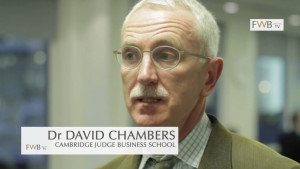By Aman Raina, Sage Investors
Special to the Financial Independence Hub
Continuing my review of Richard Thaler’s book, Misbehaving: The making of behaviorial economics, Thaler made a small comment that made me take pause:
“… Psychologists tell us that in order to learn from experience, two ingredients are necessary, frequent practice and immediate feedback…”

Investing is intimidating and hard to us because we just don’t practice or engage in it enough.
This short sentence stopped in me my tracks as it captures so neatly and concisely my motivations for becoming an investment coach.
A lot of people are intimidated by investing. There are many elements about investing that strike fear into the hearts of people. The fear of math andall those formulas, ratios, and calculations. The fear of losing all your savings. The fear and trepidation of clicking that button on your computer screen to buy or sell a stock.
How to overcome investing fears
I found the best way to overcome the fears of investing and just about any skill or competency is to educate ourself and to frequently engage in the activity and behaviour to gain experience and confidence.
When we decide to become a nurse or a computer programmer or a financial analyst, we go to school to educate ourselves and practice the skills necessary to be proficient in that occupation. To determine how successful we are in acquiring a skill we take tests and exams that provide us with meaningful and timely feedback. We then will apply those skillsets in a job where we will repetitively practice those skills we’ve developed which ultimately make us even more experienced.
These are the usual steps when it comes to becoming proficient in a skill. We will commit the time and resources to do what’s needed often enough to learn to get it right. However when it comes to choosing a home, a mortgage or an RRSP, or stock or bond, most people don’t get much practice or opportunities to learn. And when it comes to saving for retirement, barring reincarnation, we will engage in that process or journey exactly once.
People don’t invest often enough
People have a hard time with investing because they simply just don’t do it enough. We don’t commit the time to learn and practice the skill. If we’re not engaged in the process, we will not receive meaningful feedback (which is ironic because technology gives us real-time feedback on the progress of our portfolios) and we will be less likely to improve our development. When we do engage in a program with a financial advisor, often our interaction takes place at the start and maybe if we’re lucky once a year, which to me is not enough when we are talking about something so important as your personal finances. That meaningful feedback loop that can keep us engaged is few and far between.
With the proliferation of passive investment strategies and automated portfolio management services, I fear that more people in the future will be even less engaged in the process of investing and as a result will not develop the financial literacy and self-awareness of cognitive biases that can cloud our decision making. Passive investing is a powerful and effective strategy but it can be more powerful and fulfilling when we are more engaged in the process.
A lack of practice leads to a lack of commitment that provides very little feedback. As a result there is a greater probability that we will not develop the skillset, literacy, or self-awareness to make successful investment decisions.
Investment coaches are different from financial advisors
This strikes at the heart of what I do as an investment coach and what makes investment coaching so fundamentally different than a traditional financial advisor. My job is to get people I work with to engage in the process of investing and I do it through hands on training, constant engagement, and finally providing my client with meaningful and timely feedback through coaching conversations.
When someone works with me, they are making a time and financial commitment to develop their skillset for making investment decisions and my role is to enthusiastically engage them through coaching conversations about a real-time investment issue and formal education and practice. By taking this approach to nurture these financial behaviours I have found that this can have a more profound effect in the development of a person’s financial literacy.
So for me that small little sentence tucked away in Mr. Thaler’s book crystallized my raison d’etre. Who would have thought?
 Aman Raina, MBA is an Investment Coach and founder of Sage Investors, an independent practice specializing in investment coaching and portfolio analysis services. This blog was originally published on his web site and is reproduced here with permission.
Aman Raina, MBA is an Investment Coach and founder of Sage Investors, an independent practice specializing in investment coaching and portfolio analysis services. This blog was originally published on his web site and is reproduced here with permission.









